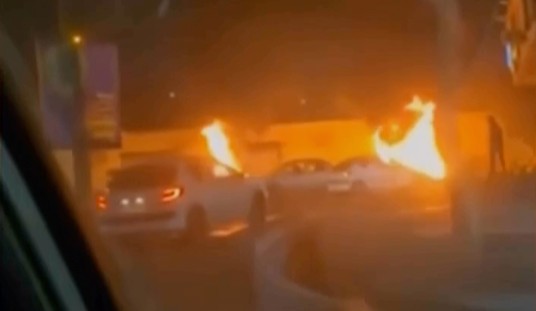Once more Saudi Arabia told distressed oil consumers to drop dead this past weekend.
Speaking at a world conference summoned to discuss what to do about insane oil prices, Saudi King Abdullah went around the room telling representatives of 35 countries there is no crisis, as his oil minister assured them there will be no Saudi oil to relieve it. Instead his royal majesty mused about “selfish” speculators, muttering assertions of enough oil out there and far too many Western bottlenecks holding it up.
Saudis have been playing this three-card Monte con game for some time. On one hand they tell anyone who would listen they are the world’s guarantors of oil stability, sitting on at least an extra two million barrels in immediate daily output — it is called swing production in oil lingo. Yet they will not “produce” it because it is so much better to get more money, honey.
The Saudis never tire of asserting that their role as “guarantor” of oil stability is reason enough to get protection by Western armies against ayatollahs and Iraqis. Yet, they cannot be imposed upon to pump more when the very health of those Western economies teeters under quintupling oil prices.
In addition to oil industry knowledge that Saudi Arabia can immediately increase production by 20 percent, it can keep on doing so into the foreseeable future. The country sits atop the world’s largest proven reserves of oil, conservatively estimated at 500 billion barrels. Only Iraq’s reserves come close to that in the Gulf region and the Iraqis, amidst war and chaos, are indeed producing all they can and plan to up it.
By contrast the Saudis, along with Kuwait and the United Arab Emirates, who are so-called allies, are literally holding oil back. Twice this year, Saudi Arabia delivered a royal nyet to President Bush’s pleas for more oil on behalf of American consumers whose tax dollars — and soldiers — were deployed to rescue those allies from Saddam Hussein’s claws. Bush, too, was told by King Abdullah to take a walk.
To be sure, a proper working of world economies depends on the laws of supply and demand, but this is not a crisis of too much demand. It is one of holding oil back under the active leadership of friendly Saudi Arabia and OPEC, with the full complicity of such foes as Iran and Venezuela.
What to do?
Instead of saying pretty please, the president could have suggested what his irate citizens may demand if they do not get relief.
It is worthwhile remembering Iraq was invaded when gasoline stood at only $2 a gallon.
It seems the president did try to explain this to the King. During his last visit, Bush — whose major expertise is as an oilman– told ABC News he explained to his majesty that “when consumers have less purchasing power because of high prices of gasoline, in other words when it affects their families, it could cause this economy to slow down.”
A follow-up can be delivered in inimitable Bush style like: “Hey King, time to fork it out. You’ve got it. We need it. What do you not understand?”
In a famous historic deal struck just after World War II on an American destroyer, President Roosevelt and King Abdulaziz al-Saud pledged America would help the Saudis find and produce their oil and protect them in return for fair and secure supplies. The meeting is recorded in abundant grainy documentaries and numerous official documents.
America and the West have kept their end of that deal for 60 years. Neocons might argue it is time for payback. Crazy as they can be sometimes, they may argue to some sympathy that the health of world economies, indeed world order, demands cheaper oil. One sure way of doing this is by invading and occupying Saudi Arabia’s Eastern Province, the mother of all oil reserves.
This seems an insane scenario now, but maybe not by summer’s end. As Mr. and Mrs. Smith drive into gas stations to be greeted by $5 or $6 a gallon signs and hundreds of homes prepare next winter for a doubling of heating costs, the Saudis should not sleep too soundly.
No war-mongering intended, but we invaded Grenada in 1983 and Iraq in 2003 for a lot less. Holding that Saudi Eastern Province pumping station under “Western stewardship” for, say, a 99-year lease may sound like fair compensation, once we go past $10 at the pump — which is what Europeans already pay.









Join the conversation as a VIP Member